|
Books Should Be Free Loyal Books Free Public Domain Audiobooks & eBook Downloads |
|
|
Books Should Be Free Loyal Books Free Public Domain Audiobooks & eBook Downloads |
|
Ancient Texts |
|---|
Book type:
Sort by:
View by:
|
By: Unknown | |
|---|---|
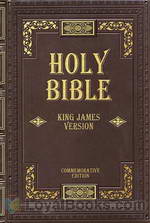 The Bible, King James Version (KJV) - Introduction
The Bible, King James Version (KJV) - Introduction
Variously known as the Greatest Story Ever Told, The Book of Books and many other names, the Bible is reputed to be the biggest bestseller of all time. Translated into thousands of world languages and studied, worshiped and revered in the four corners of the earth, the Bible remains Christianity's canonical text and is considered the Word of God. The King James Version (KJV) is a translation commissioned by the Church of England in 1604 and the work continued till 1611. However, it wasn't the first translation into English from the original Hebrew, and some portions in Aramaic... | |
By: Plato (427BC - 347BC) | |
|---|---|
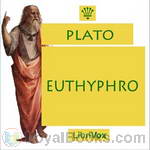 Euthyphro
Euthyphro
Awaiting his trial on charges of impiety and heresy, Socrates encounters Euthyphro, a self-proclaimed authority on matters of piety and the will of the gods. Socrates, desiring instruction in these matters, converses with Euthyphro, but as usual, the man who professes to know nothing fares better than the man who claims to be an expert. One of Plato’s well-known Socratic Dialogues, Euthyphro probes the nature of piety, and notably poses the so-called Euthyphro Dilemma: Do the gods love a thing because it is holy, or is a thing holy because it is loved by the gods? | |
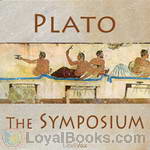 The Symposium
The Symposium
The Symposium (Ancient Greek: Συμπόσιον) is a philosophical book written by Plato sometime after 385 BCE. On one level the book deals with the genealogy, nature and purpose of love, on another level the book deals with the topic of knowledge, specifically how does one know what one knows. The topic of love is taken up in the form of a group of speeches, given by a group of men at a symposium or a wine drinking party at the house of the tragedian Agathon at Athens. Plato constructed the Symposium as a story within a story within a story... | |
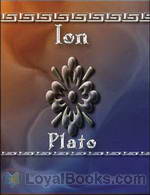 Ion
Ion
In Plato’s Ion, Socrates questions Ion on whether he should really claim laud and glory for his ‘rhapsodic’ recitals of Homer’s poetry. | |
 Timaeus
Timaeus
“Our intention is, that Timaeus, who is the most of an astronomer amongst us, and has made the nature of the universe his special study, should speak first, beginning with the generation of the world and going down to the creation of man…” ‘Timaeus’ is usually regarded as one of Plato’s later dialogues, and provides an account of the creation of the universe, with physical, metaphysical and ethical dimensions, which had great influence over philosophers for centuries following. It attributes the order and beauty of the universe to a benevolent demiurge – a ‘craftsman’ or god – fashioning the physical world after the pattern of an ideal, eternal one... | |
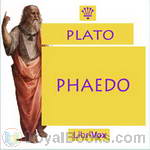 Phaedo
Phaedo
Plato's Phaedo is one of the great dialogues of his middle period, along with the Republic and the Symposium. The Phaedo, which depicts the death of Socrates, is also Plato's seventh and last dialogue to detail the philosopher's final days (the first six being Theaetetus, Euthyphro, Sophist, Statesman, Apology, and Crito).In the dialogue, Socrates discusses the nature of the afterlife on his last day before being executed by drinking hemlock. Socrates has been imprisoned and sentenced to death by an Athenian jury for not believing in the gods of the state and for corrupting the youth of the city... | |
 Phaedrus
Phaedrus
“For there is no light of justice or temperance, or any of the higher ideas which are precious to souls, in the earthly copies of them: they are seen through a glass, dimly…”Socrates and his earnest friend Phaedrus, enjoying the Athenian equivalent of a lunchtime stroll in the park, exchange views on love and on the power of words, spoken and written.Phaedrus is the most enchanting of Plato’s Erotic dialogues (capitalised in honour of the god). The barefoot philosopher urges an eager young... | |
By: Publius Cornelius Tacitus | |
|---|---|
 A Dialogue Concerning Oratory, or the Causes of Corrupt Eloquence
A Dialogue Concerning Oratory, or the Causes of Corrupt Eloquence
The scene of the Dialogus de Oratoribus, as this work is commonly known, is laid in the sixth year of Vespasian, 75 a.D. The commentators are much divided in their opinions about the real author; his work they all agree is a masterpiece in the kind; written with taste and judgement; entertaining, profound, and elegant. It is normally considered to have been written by Tacitus, even though some ascribe it to Quintilian. The main subject is the decadence of oratory, for which the cause is said to be the decline of the education, both in the family and in the school, of the future orator. In a certain way, it can be considered a miniature art of rhetoric. | |
By: Flavius Josephus (37 - c.100) | |
|---|---|
 The Antiquities of the Jews
The Antiquities of the Jews
Antiquities of the Jews was a work published by the important Jewish historian Flavius Josephus about the year 93 or 94. It is a history of the Jewish people, written in Greek for Josephus' gentile patrons. Beginning with the creation of Adam and Eve, it follows the events of the historical books of the Hebrew Bible, but sometimes omits or adds information.Volume 1 contains Books 1-5 and ends with the dedication of Samuel and death of Eli the priest. | |
By: Samuel Butler (1774-1839) | |
|---|---|
 The Atlas of Ancient and Classical Geography
The Atlas of Ancient and Classical Geography
| |
By: Marcus Tullius Cicero | |
|---|---|
 The Philippics
The Philippics
A philippic is a fiery, damning speech delivered to condemn a particular political actor. The term originates with Demosthenes, who delivered an attack on Philip II of Macedon in the 4th century BCE.Cicero consciously modeled his own attacks on Mark Antony, in 44 BC and 43 BC, on Demosthenes’s speeches, and if the correspondence between M. Brutus and Cicero are genuine [ad Brut. ii 3.4, ii 4.2], at least the fifth and seventh speeches were referred to as the Philippics in Cicero’s time. They were also called the Antonian Orations by Aulus Gellius... | |
By: Phaedrus (c. 15 BC - c. AD 50) | |
|---|---|
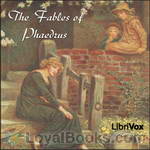 The Fables of Phaedrus
The Fables of Phaedrus
The fable is a small narrative, in prose or verse, which has as its main characteristic the aim of conveying a moral lesson (the “moral”), implicitly or, more normally, explicitly expressed. Even though the modern concept of fable is that it should have animals or inanimated objects as characters – an idea supported by the works of famous fabulists such as Aesop and La Fontaine – Phaedrus, the most important Latin fabulist, is innovative in his writing. Although many of his fables do depict animals or objects assuming speech, he also has many short stories about men, writing narratives that seem to the modern eye more like short tales than fables... | |
By: James Baikie | |
|---|---|
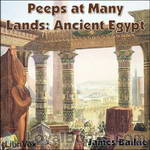 Peeps at Many Lands: Ancient Egypt
Peeps at Many Lands: Ancient Egypt
Written primarily for children, James Baikie’s ‘peep’ at ancient Egypt is a really well done, historical account of the ways of that fascinating land so many years ago. It has stood well the test of time, being both well researched and well written. It’s a fun book for everyone, and families especially will enjoy listening together. | |
By: Titus Lucretius Carus (94? BC - 49? BC) | |
|---|---|
 On the Nature of Things
On the Nature of Things
Written in the first century b.C., On the Nature of Things (in Latin, "De Rerum Natura") is a poem in six books that aims at explaining the Epicurean philosophy to the Roman audience. Among digressions about the importance of philosophy in men's life and praises of Epicurus, Lucretius created a solid treatise on the atomic theory, the falseness of religion and many kinds of natural phenomena. With no harm to his philosophical scope, the author composed a didactic poem of epic flavor, of which the imagery and style are highly praised. | |
By: Euripides (480-406 BC) | |
|---|---|
 The Bacchae
The Bacchae
This tragedy is based on the mythological story of King Pentheus of Thebes and his mother Agave, and their punishment by the god Dionysus (who is Pentheus' cousin) for refusing to worship him. | |
By: Walter Pater (1839-1894) | |
|---|---|
 Plato and Platonism
Plato and Platonism
| |
By: John Mark | |
|---|---|
 Jesus of Nazareth, A Biography
Jesus of Nazareth, A Biography
"Jesus of Nazareth, a Biography, by John Mark," recognizes the author of the second Gospel as that "John, whose surname was Mark" (Acts 15:37), whom Barnabas chose as companion when he sailed for Cyprus on his second missionary journey. In making use of the new title, the plan of the Editor is to present "The Gospel: According to Mark" as it would be printed were it written in the twentieth rather than the first century. (Introduction from Forward, by D. Appleton & Co, Publishers, 1922) | |
By: Valmiki | |
|---|---|
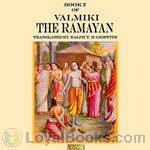 The Ramayana Book 2
The Ramayana Book 2
The Ramayana is an ancient Sanskrit epic. It is attributed to the Hindu sage Valmiki and forms an important part of the Hindu canon (smṛti). The Ramayana is one of the two great epics of India, the other being Mahabharata. It is the story of Rama, who emabrks on an epic journey followed by the fight with Ravana, the demon king who abducted Rama's wife, Sita. The epic depicts the duties of relationships, portraying ideal characters like the ideal servant, the ideal brother, the ideal wife and the ideal king. (Introduction by Om123) | |
By: John Lord (1810-1894) | |
|---|---|
 Beacon Lights of History, Vol 1: The Old Pagan Civilizations
Beacon Lights of History, Vol 1: The Old Pagan Civilizations
The first of 14 volumes, this book discusses ancient civilization looking primarily at religion and philosophy. | |
 Ancient States and Empires
Ancient States and Empires
| |
By: George Rawlinson (1812-1902) | |
|---|---|
 The Seven Great Monarchies Of The Ancient Eastern World
The Seven Great Monarchies Of The Ancient Eastern World
| |
By: Leonard W. King (1869-1919) | |
|---|---|
 History of Egypt, Chaldea, Syria, Babylonia, and Assyria in the Light of Recent Discovery
History of Egypt, Chaldea, Syria, Babylonia, and Assyria in the Light of Recent Discovery
| |
By: Patanjali | |
|---|---|
 The Yoga Sutras of Patanjali
The Yoga Sutras of Patanjali
Yoga sutras by Patanjali is a seminal work in yoga, this book is more about control of mind and the true goal of yoga. The sutras are extremely brief, and the translation in neat English makes it very easy for people to understand the ancient Sanskrit text. It starts with the birth and growth of spiritual man through the control of mind. In all, this is a "all in one" book for yoga philosophy written by the master himself. | |
By: T. L. (Thomas Louis) Haines (1844-) | |
|---|---|
 Museum of Antiquity A Description of Ancient Life
Museum of Antiquity A Description of Ancient Life
| |
By: Francis Haverfield (1860-1919) | |
|---|---|
 Ancient Town-Planning
Ancient Town-Planning
| |
By: Jacob Bryant (1715-1804) | |
|---|---|
 A New System; or, an Analysis of Antient Mythology. Volume I.
A New System; or, an Analysis of Antient Mythology. Volume I.
| |
By: Charles Rollin (1661-1741) | |
|---|---|
 The Ancient History of the Egyptians, Carthaginians, Assyrians, Babylonians, Medes and Persians, Macedonians and Grecians (Vol. 1 of 6)
The Ancient History of the Egyptians, Carthaginians, Assyrians, Babylonians, Medes and Persians, Macedonians and Grecians (Vol. 1 of 6)
| |
By: Charles Seignobos (1854-1942) | |
|---|---|
 History Of Ancient Civilization
History Of Ancient Civilization
| |
By: B. F. (Benjamin Franklin) Cocker (1821-1883) | |
|---|---|
 Christianity and Greek Philosophy or, the relation between spontaneous and reflective thought in Greece and the positive teaching of Christ and His Apostles
Christianity and Greek Philosophy or, the relation between spontaneous and reflective thought in Greece and the positive teaching of Christ and His Apostles
| |
By: Carl Niebuhr (1861-1927) | |
|---|---|
 The Tell El Amarna Period
The Tell El Amarna Period
| |
By: Dandin (6th Century) | |
|---|---|
 Twenty Two Goblins
Twenty Two Goblins
These 22 stories are told by the Goblin to the King Vikram. King Vikram faces many difficulties in bringing the vetala to the tantric. Each time Vikram tries to capture the vetala, it tells a story that ends with a riddle. If Vikram cannot answer the question correctly, the vampire consents to remain in captivity. If the king answers the question correctly, the vampire would escape and return to his tree. In some variations, the king is required to speak if he knows the answer, else his head will burst... | |
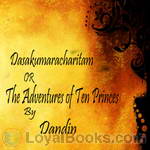 Hindoo Tales or the Adventures of Ten Princes
Hindoo Tales or the Adventures of Ten Princes
This book describes the adventures of ten Kumaras, i.e., young men, (all of whom are either princes or sons of royal ministers), as narrated by the men themselves. These narratives are replete with accounts of demigods, ghosts, gamblers, intrigues with voluptious women, astonishing coincidences, cockfights, anthropophagy, sorcery, robberies, murders and wars. | |